Introduction
Germany, the economic powerhouse of Europe, boasts a remarkable trade surplus that has consistently ranked among the world’s largest. This trade surplus, characterized by exports exceeding imports, has far-reaching implications for global trade balances and economic relations. In this article, we will explore Germany’s trade surplus, its causes, effects on the global economy, and its significance in international economic relations.
Germany, often referred to as the economic powerhouse of Europe, stands as a beacon of economic stability and resilience. Central to its economic profile is a remarkable trade surplus that has consistently ranked among the world’s largest. This trade surplus, characterized by exports consistently outpacing imports, goes far beyond mere statistics; it holds a pivotal position in shaping the global economic landscape.
At the heart of understanding Germany’s trade surplus lies the intricate web of factors that contribute to its sustained success. One of the key elements is the robust and renowned Mittelstand, a network of small and medium-sized enterprises (SMEs) that form the backbone of the German economy. These SMEs are renowned for their precision engineering, innovation, and dedication to quality. Their ability to produce high-value goods and services efficiently has been instrumental in driving Germany’s export prowess.
Furthermore, Germany’s commitment to research and development (R&D) plays a significant role in its trade surplus. The country’s dedication to innovation, particularly in engineering, technology, and advanced manufacturing, has resulted in the creation of high-demand products and services that resonate with global markets.
The effects of Germany’s trade surplus ripple across the international economic landscape. On one hand, it contributes to Germany’s economic prosperity and low unemployment rate, fostering a stable domestic environment. On the other hand, it has generated debates about global trade imbalances and currency valuation, with critics arguing that Germany’s surplus comes at the expense of trading partners.
In international economic relations, Germany’s trade surplus gives it considerable influence and leverage. It enables the country to weather economic storms more effectively and play a pivotal role in European Union economic policies. It also positions Germany as a key player in global trade negotiations, where its surplus is often a topic of discussion.
As we delve deeper into Germany’s trade surplus, we’ll explore the multifaceted nature of this economic phenomenon, considering its causes, effects on the global economy, and its significance in international economic relations. By doing so, we gain valuable insights into the dynamics of global trade, the strengths and challenges of the German economy, and the broader implications for the interconnected world of commerce.
Don’t stop here; you can continue your exploration by following this link for more details: International trade during the COVID-19 pandemic: Big shifts and …
A trade surplus occurs when a country exports more goods and services than it imports. Germany has maintained a substantial trade surplus for decades, consistently ranking among the top nations with such surpluses. Key factors contributing to Germany’s trade surplus include:
A trade surplus, as the term suggests, occurs when a country’s exports exceed its imports, resulting in a positive balance of trade. Germany has been synonymous with trade surpluses for decades, consistently ranking among the top nations with such economic advantages. The sustained presence of this surplus speaks volumes about the nation’s economic strength and the factors that underpin it.
One of the primary contributors to Germany’s trade surplus is its reputation for engineering excellence and manufacturing prowess. German-made products, ranging from automobiles to machinery and precision instruments, are renowned worldwide for their quality, innovation, and reliability. This global demand for German goods is a driving force behind the surplus, as consumers and businesses across the globe eagerly seek out these high-value products.
Furthermore, Germany’s strong and diversified industrial base plays a pivotal role in maintaining a trade surplus. The country’s manufacturing sector encompasses a wide range of industries, from automotive and chemical production to machinery and electronics. This diversity ensures that Germany can meet the demands of a broad spectrum of international markets, making its exports less susceptible to economic fluctuations.
The strength of the “Made in Germany” brand also contributes significantly to the nation’s trade surplus. This label is synonymous with craftsmanship, precision, and innovation, creating a competitive advantage for German companies. It inspires trust and confidence among consumers and businesses alike, driving demand for German products even in fiercely competitive global markets.
Additionally, Germany’s emphasis on education and vocational training has created a skilled workforce that is essential for maintaining high-quality production standards. The country’s commitment to research and development further enhances its ability to innovate and remain at the forefront of emerging industries and technologies.
Germany’s disciplined fiscal policies and prudent financial management also deserve mention. These measures have helped stabilize the country’s economy, ensuring that it remains an attractive destination for investors and businesses. As a result, foreign direct investment in Germany continues to flow, contributing to its trade surplus.
In conclusion, Germany’s sustained trade surplus is a testament to its industrial excellence, diversified manufacturing sector, strong global brand, skilled workforce, and sound economic policies. These factors have positioned Germany as a global trade leader, and its trade surplus remains a significant driver of its economic success and global influence.
Should you desire more in-depth information, it’s available for your perusal on this page: The U.S. Trade Deficit: How Much Does It Matter? | Council on …
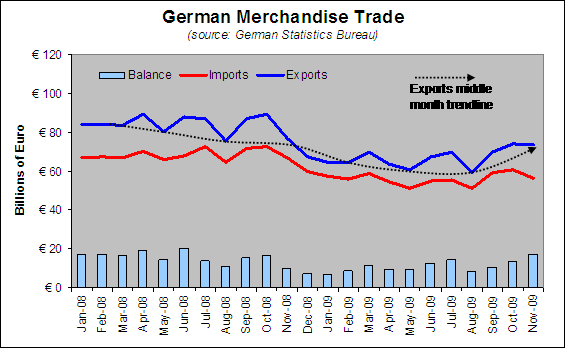
Germany is renowned for its export-oriented economy, with a diverse range of high-quality products, from automobiles to machinery and chemicals. The “Made in Germany” label signifies quality and reliability, driving demand worldwide.
Germany’s reputation as an export powerhouse is not just a product of chance; it’s a testament to the nation’s unwavering commitment to excellence and innovation. The “Made in Germany” label has become synonymous with top-tier quality and unmatched reliability, resonating with consumers and businesses alike on a global scale.
At the core of Germany’s export success story is its relentless pursuit of excellence in manufacturing. The country’s engineering prowess is unrivaled, evident in the automotive sector where iconic brands like Mercedes-Benz, Volkswagen, and BMW have established themselves as symbols of precision and luxury. German-made machinery and equipment, known for their durability and precision, play a crucial role in industries worldwide, from manufacturing to construction.
But Germany’s export portfolio goes beyond just automobiles and machinery. The nation is also a leading exporter of chemicals, pharmaceuticals, and high-tech electronics. German pharmaceutical companies are at the forefront of medical research, developing life-saving drugs and therapies that benefit people globally. Meanwhile, the chemical industry provides essential raw materials for countless applications, from plastics to pharmaceuticals.
Germany’s export-oriented economy is underpinned by a strong commitment to research and development (R&D). The country consistently ranks among the top spenders on R&D globally, fostering a culture of innovation that ensures its products remain on the cutting edge. This dedication to innovation extends to sustainability, with many German companies leading the way in eco-friendly manufacturing practices and renewable energy solutions.
The resilience of the “Made in Germany” brand was further demonstrated during times of economic uncertainty, such as the global financial crisis and the recent challenges posed by the COVID-19 pandemic. German exports remained robust, showcasing the trust that international markets place in the reliability of German products.
In essence, Germany’s export success is a blend of tradition and innovation. It’s a testament to the nation’s rich industrial heritage, as well as its adaptability and forward-thinking approach. As the world continues to evolve, Germany’s export-oriented economy remains a model for others to emulate, demonstrating that quality, reliability, and innovation are the cornerstones of enduring economic success.
For a comprehensive look at this subject, we invite you to read more on this dedicated page: U.S. Trade Policy: Background and Current Issues
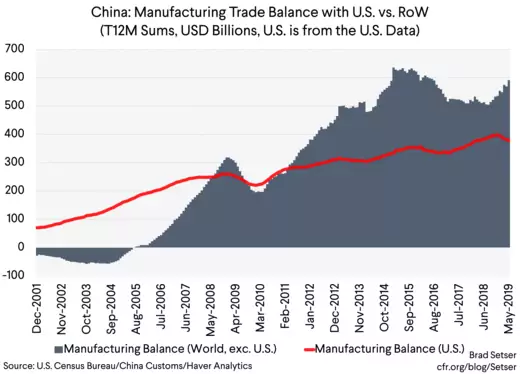
The country’s robust industrial base, including the renowned Mittelstand (small and medium-sized enterprises), plays a crucial role in manufacturing and exporting goods. These companies specialize in niche markets and innovation, enhancing Germany’s competitive advantage.
Germany’s economic strength is deeply rooted in its robust industrial base, where the renowned Mittelstand, comprising small and medium-sized enterprises (SMEs), takes center stage. These SMEs are the unsung heroes of the German economy and contribute significantly to the nation’s manufacturing prowess and global export success. Their unique characteristics and unwavering commitment to excellence continue to bolster Germany’s competitive advantage in the international marketplace.
The Mittelstand, often described as the backbone of the German economy, embodies a spirit of innovation and adaptability that is second to none. These companies are not just confined to traditional manufacturing; they are pioneers in niche markets and cutting-edge technologies. Their ability to identify and capitalize on emerging trends ensures that Germany remains at the forefront of global industries.
One of the key strengths of Mittelstand companies is their agility. Unlike larger corporations, they can swiftly respond to market changes, adapt their production processes, and bring new products to market with remarkable speed. This nimbleness allows them to stay ahead of the curve and maintain a competitive edge, even in fast-paced and dynamic industries.
Innovation is ingrained in the DNA of these enterprises. They invest heavily in research and development, pushing the boundaries of what is possible in their respective fields. Whether it’s advanced engineering solutions, high-tech machinery, or sustainable manufacturing practices, Mittelstand firms consistently raise the bar for innovation, setting new standards for quality and efficiency.
Moreover, the Mittelstand fosters a culture of expertise and craftsmanship. Skilled artisans and engineers are at the heart of these enterprises, and their dedication to precision and quality is unparalleled. This commitment to excellence not only results in top-tier products but also builds a reputation for German craftsmanship that is respected worldwide.
The Mittelstand’s influence extends well beyond Germany’s borders. These SMEs are crucial players in global supply chains, providing specialized components and solutions to industries ranging from automotive and machinery to electronics and healthcare. Their reliability and expertise make them sought-after partners for businesses around the world, reinforcing Germany’s status as a global manufacturing hub.
In conclusion, the Mittelstand’s role in Germany’s industrial landscape cannot be overstated. These small and medium-sized enterprises embody innovation, agility, and craftsmanship, all of which contribute to Germany’s enduring competitive advantage on the world stage. As they continue to lead in niche markets and push the boundaries of what is possible, the Mittelstand ensures that Germany remains a powerhouse of technological and industrial advancements, setting benchmarks for the global economy to follow.
You can also read more about this here: The U.S. Trade Deficit: How Much Does It Matter? | Council on …
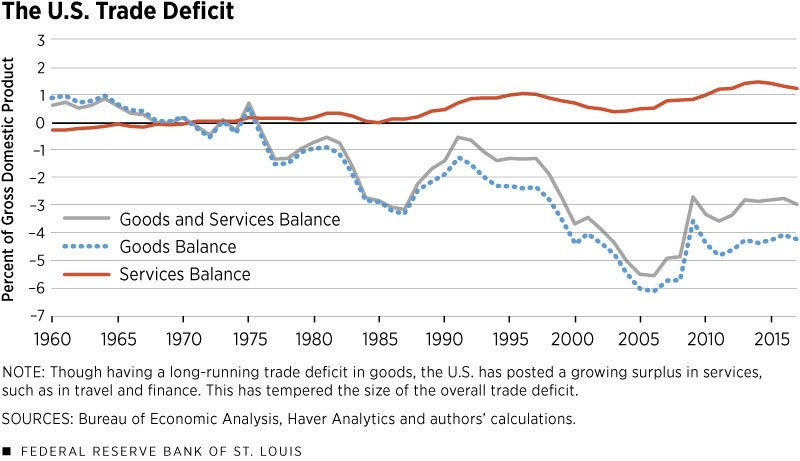
Germany’s emphasis on innovation and technology has led to the development of cutting-edge products and solutions, further fueling its exports. The country invests heavily in research and development, ensuring its products remain at the forefront of global markets.
Germany’s emphasis on innovation and technology has indeed led to the development of cutting-edge products and solutions, further fueling its exports and solidifying its position as an economic powerhouse. The country’s commitment to staying at the forefront of global markets is reflected in its substantial investments in research and development (R&D).
One of the standout features of Germany’s approach to R&D is the close collaboration between academia, industry, and government. This tripartite cooperation creates a fertile ground for innovation to flourish. Universities and research institutions work hand in hand with businesses, sharing knowledge and resources to tackle complex challenges. This collaborative ecosystem not only fosters breakthrough discoveries but also expedites their transformation into market-ready products.
Germany’s dedication to R&D goes beyond financial investments; it’s deeply ingrained in its cultural and educational fabric. The German education system places a strong emphasis on STEM disciplines, nurturing the next generation of scientists, engineers, and innovators. As a result, the country consistently produces a skilled workforce capable of driving technological advancements.
Moreover, Germany’s commitment to sustainable practices and green technology is a testament to its forward-thinking approach. The integration of environmentally friendly solutions into various industries, such as clean energy, electric mobility, and eco-friendly manufacturing processes, not only aligns with global sustainability goals but also opens up new export opportunities.
Furthermore, the country’s robust patent system and protection of intellectual property rights provide a secure environment for inventors and businesses to invest in R&D. This legal framework encourages creativity and innovation by safeguarding the fruits of research.
In a rapidly changing world, where the pace of technological advancement is relentless, Germany’s consistent investment in R&D ensures that its products and solutions remain competitive and sought after in international markets. This dedication to innovation not only fuels economic growth but also strengthens its global influence as a leader in technology and innovation.
Should you desire more in-depth information, it’s available for your perusal on this page: U.S. Trade Policy: Background and Current Issues
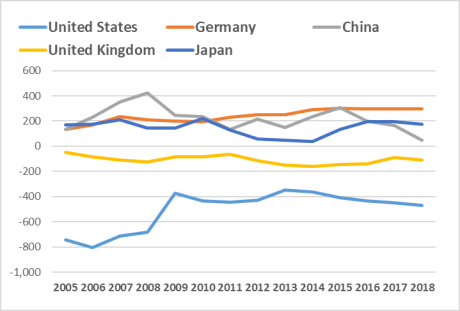
Germany’s trade surplus has significant implications for global trade balances:
Germany’s trade surplus has significant implications for global trade balances, reflecting both the strengths and challenges of its economic model. This surplus, driven by the country’s robust export-oriented economy, carries several noteworthy consequences that reverberate across the global economic landscape:
Currency Valuation and Exchange Rates: Germany’s consistent trade surplus contributes to the appreciation of the euro, the common currency of the Eurozone. This can affect the competitiveness of other Eurozone countries, potentially hampering their export performance. Moreover, it can lead to global imbalances, as a strong euro can make exports from other regions more attractive.
Trade Partner Imbalances: Germany’s surplus indicates that it exports more than it imports, leading to trade deficits for some of its trading partners. These imbalances can create tensions in international trade relationships and contribute to global trade disputes.
Global Economic Stability: Germany’s strong trade position can act as a stabilizing force in times of global economic uncertainty. Its exports provide stability and resilience, helping to sustain employment and economic growth even during international downturns.
Domestic Economic Strength: The trade surplus supports Germany’s domestic economy by creating jobs and fostering economic growth. This, in turn, contributes to social welfare and helps maintain a high standard of living.
Critiques of Trade Practices: Germany’s trade surplus has faced criticism from international organizations, including the International Monetary Fund (IMF) and the European Commission. Some argue that the persistent surplus reflects imbalances within the Eurozone and the global economy, potentially hindering more equitable and sustainable economic growth.
Structural Challenges: The trade surplus highlights structural issues within Germany’s economy, such as its reliance on exports and the relative underinvestment in domestic consumption. Addressing these challenges could promote more balanced growth and contribute to a healthier global trade environment.
Policy Implications: The persistent surplus has prompted discussions on the need for policy adjustments, including potential fiscal stimulus measures within Germany to boost domestic consumption and imports, thus reducing the trade surplus.
Global Economic Cooperation: Germany’s trade surplus underscores the importance of cooperation among nations to address trade imbalances collectively. Multilateral discussions and agreements are vital to managing these imbalances without resorting to protectionism.
In conclusion, Germany’s trade surplus is a double-edged sword with far-reaching implications for the global economy. While it signifies the country’s economic strength and stability, it also poses challenges related to exchange rates, trade partner imbalances, and global economic cooperation. Finding a balanced approach that benefits both Germany and its trading partners while contributing to global economic stability remains an ongoing challenge in the complex arena of international trade.
Looking for more insights? You’ll find them right here in our extended coverage: Foreign Trade – U.S. Trade with .
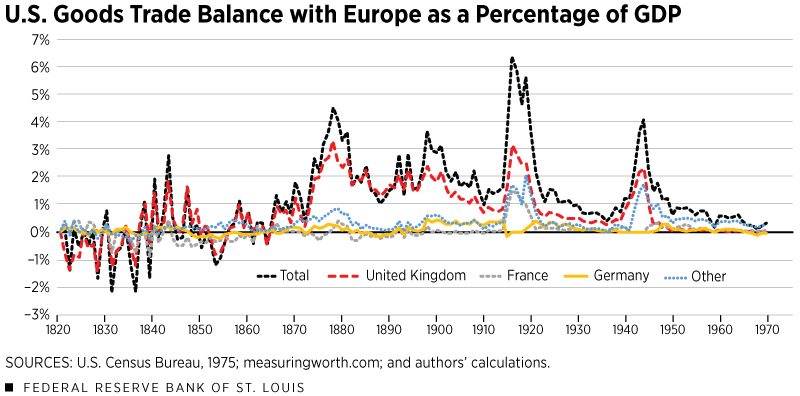
Germany’s trade surplus can create imbalances within the Eurozone and the broader European Union. While Germany’s exports flourish, some other member states struggle with trade deficits, which can hinder their economic growth and competitiveness.
Germany’s trade surplus, while a testament to its economic prowess, indeed presents a double-edged sword within the Eurozone and the broader European Union. While Germany’s exports flourish, some other member states struggle with trade deficits, which can hinder their economic growth and competitiveness. This imbalance underscores the need for collective action and collaborative solutions to ensure a more equitable and sustainable economic landscape within the EU.
Trade Imbalances: Germany’s persistent trade surplus means that it exports more than it imports, accumulating significant foreign reserves. Conversely, some EU member states consistently run trade deficits, leading to increasing levels of debt. These imbalances can create economic vulnerabilities, especially during times of global economic uncertainty.
Competitiveness Gap: The stark contrast in trade performance between Germany and certain EU nations can lead to a competitiveness gap. Germany’s export-driven model relies on high-quality manufacturing and technological innovation, making it difficult for other countries with less industrialized economies to compete on a level playing field.
Exchange Rate Pressures: Germany’s trade surplus can lead to upward pressure on the euro’s exchange rate, which can negatively impact the competitiveness of other EU nations. A stronger euro can make their exports more expensive and less attractive to international markets.
Impact on Economic Growth: When some EU member states continually grapple with trade deficits, it can hinder their overall economic growth. Trade imbalances limit their ability to invest in infrastructure, education, and innovation, crucial factors for long-term economic prosperity.
Policy Coordination: Addressing these trade imbalances requires coordinated policy efforts within the Eurozone and the EU. Policymakers must find ways to encourage domestic demand and investment in countries with trade deficits while maintaining Germany’s export strength.
Domestic Demand in Germany: Encouraging stronger domestic demand within Germany could help mitigate trade imbalances. Measures to boost consumer spending and investment can reduce the country’s reliance on external markets for growth.
Investment in Lagging Economies: EU institutions, along with member states, need to focus on strategies that channel investment into regions and industries that lag behind. This could include targeted funding for research and development, infrastructure, and vocational training to improve competitiveness.
Enhanced Economic Integration: Deeper economic integration within the EU, such as the development of a genuine single market for services, can help level the playing field for all member states, reducing trade imbalances and fostering a more harmonious economic environment.
In conclusion, Germany’s trade surplus, while indicative of its economic strength, has repercussions within the Eurozone and the broader European Union. Addressing trade imbalances and ensuring economic prosperity for all member states requires collaborative efforts, policy coordination, and a commitment to boosting domestic demand and investment in lagging economies. Achieving a more balanced economic landscape within the EU will contribute to greater stability and resilience in the face of global economic challenges.
Looking for more insights? You’ll find them right here in our extended coverage: Germany’s trade surplus is a problem | Brookings
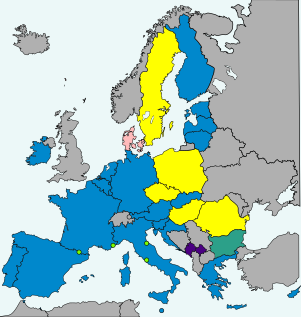
Germany’s trade surplus contributes to global trade imbalances. Some trading partners, particularly the United States, have expressed concerns about these imbalances, which can lead to trade tensions and protectionist measures.
Germany’s trade surplus, while a testament to the country’s economic strength and competitiveness, does indeed contribute to global trade imbalances. This surplus has raised concerns among some of its trading partners, most notably the United States, regarding the potential adverse effects that such imbalances can trigger. These concerns underscore the complexities and challenges that can arise in international trade relationships.
One key issue stemming from Germany’s trade surplus is the impact on exchange rates. When a country consistently exports more than it imports, it can drive up the value of its currency. This, in turn, can make its exports more expensive for foreign buyers and imports cheaper for its own consumers. Such currency fluctuations can create an uneven playing field in global trade, disadvantaging other nations and fostering discontent.
Furthermore, persistent trade imbalances can lead to trade tensions. Trading partners, especially those with significant trade deficits, may perceive the surplus nation as engaging in unfair trade practices, such as currency manipulation or subsidizing exports. These grievances can escalate into trade disputes and spark retaliatory measures, disrupting global trade relationships and causing economic uncertainties.
To address these concerns, there is a growing need for constructive dialogue and collaborative efforts among nations. Germany has acknowledged the importance of addressing trade imbalances and has taken steps to boost domestic consumption and investment to reduce its trade surplus. Such actions can help alleviate the concerns of trading partners and promote more balanced global trade.
It’s essential to recognize that trade imbalances are multifaceted and cannot be solely attributed to one nation’s policies. They often result from a combination of factors, including differences in saving and consumption patterns, exchange rates, and economic structures. Therefore, addressing trade imbalances requires a coordinated approach involving multiple nations and organizations, such as the World Trade Organization (WTO).
In conclusion, Germany’s trade surplus contributes to global trade imbalances, which can indeed lead to trade tensions and protectionist measures. These imbalances underscore the need for collaborative efforts among nations to promote a fair and balanced global trading system. Recognizing the complexity of the issue and engaging in constructive dialogue is essential to ensure that global trade remains a catalyst for economic growth and prosperity for all nations involved.
Additionally, you can find further information on this topic by visiting this page: Foreign Trade – U.S. Trade with .

A sustained trade surplus can lead to the appreciation of the nation’s currency, the euro. A stronger euro can affect the competitiveness of European exports, potentially impacting the economic performance of other EU countries.
A sustained trade surplus, while often viewed positively as a sign of economic strength, can have complex repercussions on a nation’s currency and its neighboring economies within the European Union. Here’s a deeper exploration of these effects:
Currency Appreciation: When a country consistently exports more than it imports, it accumulates foreign currency reserves. As a result, demand for the nation’s currency, in this case, the euro, increases. This heightened demand can lead to an appreciation of the euro’s exchange rate against other currencies. A stronger euro means that each unit of the currency can buy more foreign goods and services, which can potentially affect the competitiveness of European exports.
Impact on Exports: A stronger euro can make European exports more expensive for foreign buyers. This can result in reduced demand for European goods and services in international markets, affecting the competitiveness of European businesses, especially those reliant on exports. Industries like manufacturing and agriculture, which heavily depend on global markets, might face challenges as their products become relatively more costly.
Shift in Trade Balance: The impact on competitiveness can lead to a shift in the nation’s trade balance. A stronger euro may cause a decline in exports and an increase in imports, potentially reversing the trade surplus. This shift can have economic repercussions, as it affects the income generated from trade and, consequently, the overall economic performance.
Effects on Neighboring EU Countries: The euro is not just Germany’s currency; it’s the common currency of many European Union countries. Therefore, changes in its exchange rate can have widespread effects. A stronger euro can hurt the competitiveness of exports from other Eurozone countries, potentially impacting their economic growth. This interdependence highlights the need for coordination and cooperation among EU members to maintain economic stability.
Policy Responses: In response to a strengthening euro, governments and central banks may implement various policy measures. For instance, they might engage in foreign exchange interventions to stabilize the currency’s value, implement monetary policies to control interest rates, or promote domestic consumption to counterbalance the reduced demand for exports.
Diversification of Exports: A stronger euro can also prompt businesses to diversify their export markets or focus on higher value-added products that are less sensitive to price changes. Such strategic adjustments can help mitigate the negative effects of currency appreciation.
Long-Term Economic Resilience: It’s important to note that while a strong currency can pose challenges, it can also reflect economic strength and stability. Germany’s ability to maintain a trade surplus for an extended period indicates the competitiveness of its industries and the quality of its products. In the long term, these factors can contribute to economic resilience.
In conclusion, the relationship between a sustained trade surplus and currency appreciation is a complex one, with implications not only for the nation’s economy but also for the broader European Union. The impact on competitiveness and trade dynamics underscores the need for effective economic policies and coordination among EU members to ensure the stability and prosperity of the eurozone as a whole.
Additionally, you can find further information on this topic by visiting this page: Germany’s Current Account and Trade Surpluses
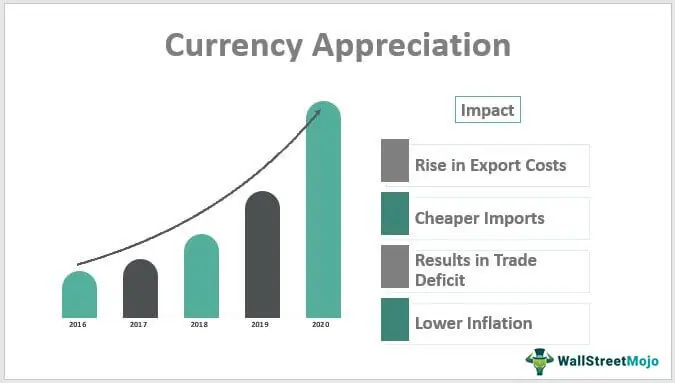
Germany’s trade surplus also has far-reaching effects on international economic relations:
Germany’s trade surplus also has far-reaching effects on international economic relations, shaping not only its economic partnerships but also influencing global economic dynamics in several critical ways:
Diplomatic Relations: Germany’s trade surplus often sparks diplomatic discussions and negotiations with its trading partners. Countries that consistently run trade deficits with Germany may request trade talks to address perceived imbalances. These diplomatic interactions can either lead to mutually beneficial agreements or escalate into trade disputes, affecting broader diplomatic relations.
Global Economic Governance: Germany’s trade surplus is often cited in international discussions about global economic governance. It becomes a focal point in debates surrounding trade policy, currency exchange rates, and the overall health of the global economy. The country’s economic policies and trade practices can set examples for other nations and influence the direction of international economic policies.
Trade Alliances and Agreements: Germany’s trade surplus influences the formation and dynamics of trade alliances and agreements. In some cases, countries may seek closer economic ties with Germany to gain access to its robust market and benefit from its economic stability. Conversely, countries experiencing trade deficits with Germany may be more motivated to join trade alliances that aim to counteract perceived imbalances.
Investment Flows: Germany’s economic success and trade surplus attract foreign direct investment (FDI) from around the world. Foreign companies seek to establish a presence in Germany to tap into its prosperous market and skilled workforce. This influx of FDI can lead to increased competition, innovation, and job creation within the country.
Global Economic Stability: As one of the world’s largest economies, Germany’s economic performance has a considerable impact on global economic stability. Its trade surplus contributes to the euro’s strength, which can affect international currency exchange rates and global financial markets. Economic instability in Germany, in turn, can send shockwaves throughout the global economy.
Multilateral Trade Negotiations: Germany’s trade surplus is often a subject of discussion in multilateral trade negotiations, such as those conducted under the World Trade Organization (WTO). It can influence the bargaining positions of both developed and developing countries, as they seek to address trade imbalances and promote more equitable international trade practices.
In conclusion, Germany’s trade surplus is not just a domestic economic phenomenon; it holds substantial implications for international economic relations, diplomacy, and global economic governance. The country’s role as an economic powerhouse means that its trade practices and policies reverberate far beyond its borders, making it a central player in the intricate web of global economic interdependence.
For a comprehensive look at this subject, we invite you to read more on this dedicated page: U.S. Trade Policy: Background and Current Issues

Germany’s surplus has occasionally strained its political and trade relations, especially with countries like the United States. Disputes over trade imbalances can lead to protectionist measures and trade tensions.
Germany’s surplus, often driven by its strong export-oriented economy, has at times strained its political and trade relations, particularly with economic powerhouses like the United States. The persistent trade imbalances between Germany and its trading partners can spark diplomatic frictions and escalate into protectionist measures and trade tensions.
One of the key concerns surrounding Germany’s surplus is its impact on global trade dynamics. Excessive surpluses can create an uneven playing field, as they often result from an undervalued currency, lower labor costs, or market access barriers in other countries. This perceived advantage can provoke accusations of unfair trade practices, prompting other nations to retaliate with tariffs or restrictions, as witnessed in the U.S.-Germany trade disputes.
Moreover, Germany’s surplus has implications not only for its bilateral relations but also for the broader European Union (EU). As the largest and most influential economy within the EU, Germany’s trade practices can influence the region’s economic policies. This sometimes leads to internal tensions within the EU, as other member states may feel that Germany’s economic dominance within the bloc affects their economic interests.
To address these challenges and maintain healthy trade relations, Germany has recognized the need to recalibrate its economic policies. Efforts to boost domestic consumption and reduce its dependence on exports have been initiated. Additionally, Germany has committed to investing in infrastructure, innovation, and workforce development to promote balanced growth and address trade imbalances.
In conclusion, while Germany’s economic surplus is a testament to its industrial prowess, it comes with its share of challenges in the global trade arena. Managing these tensions requires a delicate balance between maintaining economic strength and addressing concerns raised by its trading partners. A proactive approach that fosters cooperation and seeks mutually beneficial solutions remains crucial to minimizing trade tensions and promoting global economic stability.
Looking for more insights? You’ll find them right here in our extended coverage: US–EU Trade Relations in the Trump Era

Germany’s strong economic performance, driven by its trade surplus, contributes to economic stability within the Eurozone. However, this success has led to debates over fair burden-sharing within the EU.
Germany’s robust economic performance, anchored by its consistent trade surplus, has not only positioned the nation as an economic powerhouse within the Eurozone but has also played a pivotal role in maintaining economic stability across the entire European Union (EU). This stability is crucial, as it fosters confidence among member states and investors, creating a resilient economic environment in the face of global challenges.
The trade surplus, often lauded as a symbol of Germany’s economic prowess, has become both an asset and a point of contention within the EU. On one hand, it bolsters the nation’s fiscal strength and provides resources for vital investments in infrastructure, research and development, and social programs. These investments, in turn, fuel economic growth and innovation, benefiting not only Germany but the broader European community.
However, the surplus has sparked debates surrounding fair burden-sharing within the EU. Some argue that Germany’s success has come at the expense of other member states, leading to economic imbalances within the euro area. This discussion centers on the need for more equitable wealth distribution, as well as how Germany can contribute further to EU initiatives and projects aimed at bolstering economic growth across the region.
Germany recognizes the importance of addressing these concerns, and efforts are underway to find common ground within the EU. This includes discussions on fiscal policy coordination, investment in lagging regions, and mechanisms to ensure that Germany’s economic strength benefits the entire European community. The aim is not only to achieve economic balance but also to strengthen the unity and resilience of the EU in the face of future economic challenges.
In conclusion, Germany’s economic performance and trade surplus are instrumental in maintaining economic stability within the Eurozone. While these successes are celebrated, they also bring to light important questions about fair burden-sharing and economic equity within the EU. As Germany continues to navigate this complex landscape, its commitment to collaborative solutions and the prosperity of all member states underscores the nation’s dedication to a unified and prosperous European future.
Don’t stop here; you can continue your exploration by following this link for more details: World Economic Outlook, War Sets back the Global Recovery, April …

The surplus has domestic implications, as well. Critics argue that Germany’s focus on exports might hinder domestic consumption and investment, potentially limiting economic growth in the long term.
The domestic implications of Germany’s trade surplus indeed spark ongoing discussions among economists and policymakers. While it’s true that the country’s export-oriented approach has bolstered its economic stability, it’s not without its potential drawbacks.
One significant concern is the impact on domestic consumption and investment. Germany’s emphasis on exports often means that a substantial portion of its production is geared toward meeting international demand. This can lead to a situation where domestic consumers have access to fewer goods and services due to the priority placed on foreign markets. Critics argue that this can hinder the growth of domestic consumption and, subsequently, limit the country’s overall economic expansion.
Moreover, the surplus generated from exports can result in an overvalued currency, making German goods relatively more expensive for foreign buyers. This can further dampen exports, potentially leading to a reliance on domestic consumption for economic growth. However, due to the historically high savings rate and a culture of financial prudence in Germany, there may be a reluctance among citizens to significantly increase consumption, which could offset the trade surplus.
Another concern is the allocation of resources within the German economy. The focus on export-oriented industries, such as manufacturing and engineering, might divert resources away from other sectors that could benefit from investment. This imbalance can lead to potential vulnerabilities in the economy, especially if there are external shocks or shifts in global demand for German goods.
However, it’s important to note that Germany’s economic policymakers are not oblivious to these concerns. In recent years, there have been efforts to promote domestic investment and stimulate consumption through various policy measures. Additionally, the discussion around rebalancing the economy to ensure sustainable growth remains a topic of debate and reform in Germany.
In summary, while Germany’s trade surplus has undoubtedly contributed to its economic success and stability, it does raise important questions about the balance between exports and domestic priorities. Finding the right equilibrium between export-led growth and supporting domestic consumption and investment is an ongoing challenge for Germany’s economic policymakers, and the outcomes of these efforts will significantly shape the country’s economic landscape in the long term.
Should you desire more in-depth information, it’s available for your perusal on this page: Chapter 3: Trade Agreements and Economic Theory | Wilson Center

Conclusion
Germany’s persistent trade surplus is a testament to its economic strength and export prowess. While it contributes to global imbalances and can create tensions in international economic relations, it also plays a crucial role in maintaining economic stability within the Eurozone. As Germany navigates its trade policies, finding a balance between export-driven growth and addressing trade imbalances remains a critical challenge for both the country and the global economy as a whole.
Germany’s persistent trade surplus is indeed a double-edged sword, reflecting both its economic prowess and presenting certain challenges on the global stage. It is essential to delve deeper into the multifaceted impact of this surplus, as it not only has implications for Germany but also reverberates throughout the international economic landscape.
On one hand, Germany’s trade surplus underscores its economic might and export capabilities. This surplus reflects the competitiveness of German industries, which are globally recognized for their innovation and high-quality products. It has helped Germany maintain a robust and resilient economy, even during times of global economic uncertainty. This economic stability, in turn, benefits not only Germany but also the entire Eurozone, as it contributes to the overall strength and reliability of the European economy.
However, the persistent nature of Germany’s trade surplus can create global imbalances and provoke tensions in international economic relations. Some argue that the surplus reflects an unequal distribution of economic benefits, as it often means that Germany exports more than it imports, potentially leaving trading partners with trade deficits. This situation can strain diplomatic and economic relations, particularly in an era of rising protectionism and trade disputes.
Furthermore, within the Eurozone, Germany’s trade surplus can have complex effects. While it contributes to the region’s overall economic stability, it can also exacerbate economic disparities among Eurozone member states. Countries with trade deficits may find it challenging to compete with German exports, potentially leading to economic challenges in those regions.
Navigating these complexities, Germany faces a pressing challenge: finding a balance between maintaining export-driven growth and addressing global trade imbalances. Striking this balance is crucial not only for Germany but also for the global economy as a whole. It requires a comprehensive approach that considers not only trade policies but also fiscal and monetary measures to promote more balanced trade relationships worldwide.
In conclusion, Germany’s trade surplus is a reflection of its economic strength, but it also poses challenges to global economic stability and relationships. Balancing export-driven growth with efforts to address trade imbalances is a multifaceted challenge that requires cooperation and thoughtful policy decisions, both within Germany and on the international stage, to ensure a more equitable and sustainable global trade environment.
For a comprehensive look at this subject, we invite you to read more on this dedicated page: Should the United States Run a Trade Surplus? – Carnegie …
More links
Should you desire more in-depth information, it’s available for your perusal on this page: Germany’s Current Account and Trade Surpluses
